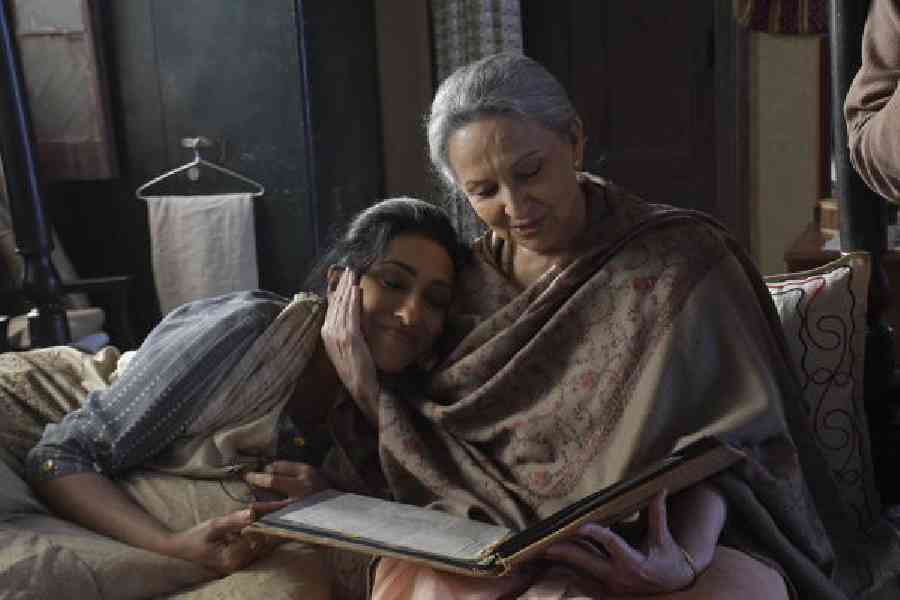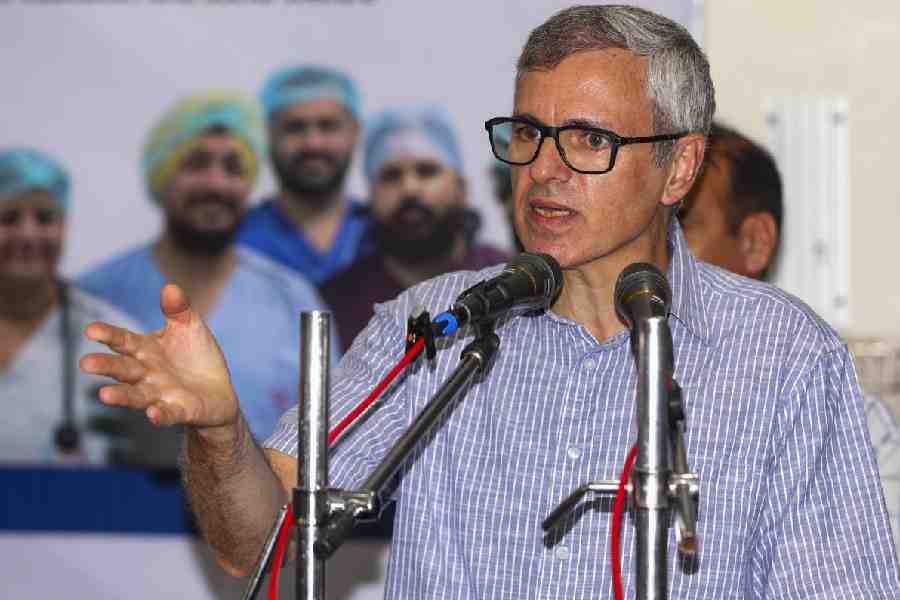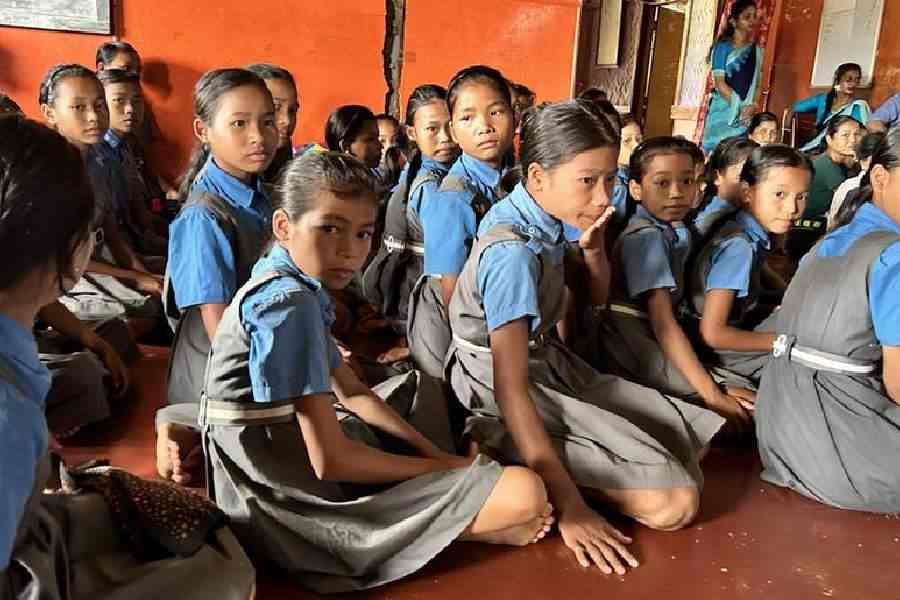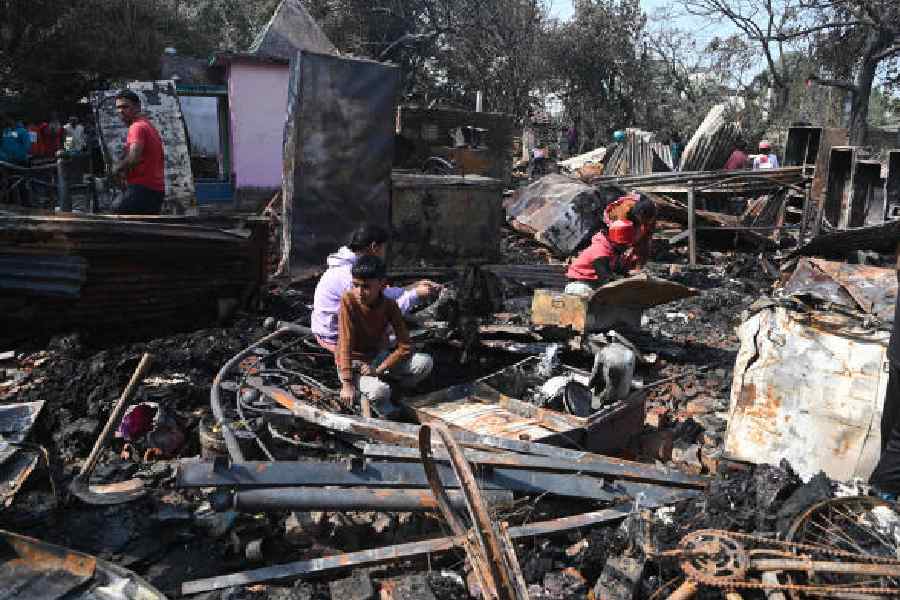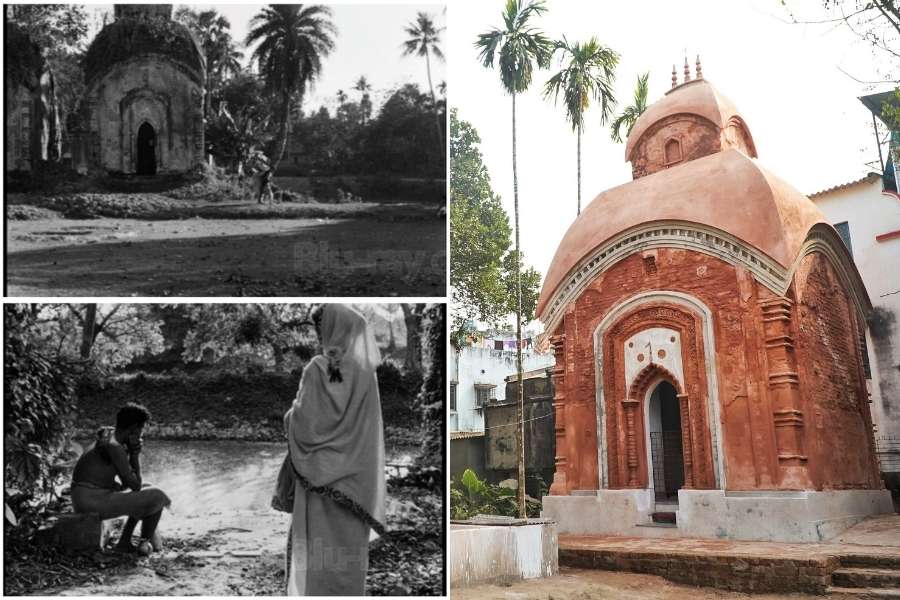In an era where the Internet is a party to what the late lamented Fredric Jameson called the 'Niagara of visual gabble', a film like Puratawn can certainly be called an exception. Suman Ghosh's creation of an intricate tapestry of relationships dipped in the half-light of fleeting memories and yearnings, is undoubtedly a film that grows on you as it moves along. Unhurried in its pacing, the film does contain some very resonant moments like the long shot of Rajeev walking back with his mother-in-law; the shot is held on almost interminably, rendering the mise-en-scene with a bewitching quality.
The protagonist, in the true sense of the term, is the mother-in-law, Mrs Sen (Sharmila Tagore), the mother of Rittika (Rituparna Sengupta), the matriarch who alternately bullies and mollycoddles her attendant, the elegant personality whose beliefs and principles are subtly expressed in her fragile state. Sharmila Tagore plays this role with confidence and care, revealing her vulnerable side with intricate control. The pauses and silences are used to great advantage, revealing a salutary bonding between the artiste and her director. Using the so-called independent relationship with the son-in-law as another strand in the world of the lady from another world, perhaps, the narrative succeeds in presenting a complex situation that defies definition. One felt, however, that this independent relationship could have been developed a little more. It did have certain possibilities.
Using a somewhat scrambled storyline, the film uses the event of celebrating Rittika's mother's 80th birthday to reveal how things are not the same any more. Rittika's mother has changed, somewhat, without actually changing and this oxymoronic reality is a reflection of how relationships change and time becomes the ultimate arbitrator.
The relationship between Rittika, played with competence by Rituparna, and Rajeev (Indraneil Sengupta) comes across as interesting even if hydra-headed. Rajeev's first wife seems, in a strange way, to come between him and Rittika. The situation is faintly reminiscent of the Neil Simon play, Chapter Two, which was, to some extent, autobiographical in its content. The initial conflict, the incessant questioning and consequent irritation all lead to the final denouement when the truth is revealed in an unexpectedly anti-dramatic manner. In the penultimate sequence before the advent of the matriarch, the effortless albeit distinctly painful memory is beautifully brought out by Indraneil.
Indraneil is consistent throughout and deserves credit for his crafting of the role. The only fly in the ointment is the lack of any genuine vacillation on his part, rather than his consistent philosophising; a tad more of uncertainty and emotional instability may have made the character even more genuine but that is more to do with the script than anything else. The character of the friend who is also a psychological counselor (a psychiatrist perhaps), is deftly executed by Ekavali Khanna but the characterisation seems a trifle one-dimensional as in the case, also, of the young attendant whose responses, though believable, are quite conventional. Rituparna, as Rittika, the daughter of the protagonist, has a difficult role to play. One that is subtle and full of nuances but also drawn out in the half light of a myriad memories and incomplete yearnings.
Rituparna approaches the role with the right degree of intensity, often underplaying the emotions but remaining true to the director's vision. Her performance in the scene when she confronts her husband (who was reliving his past) is extremely eloquent, to say the least. This is one of Rituparna's most challenging roles as she is pitted against a protagonist who can be unpredictable and capricious; and Sharmila is all of that and more. I can say, with some confidence, that both these artistes have done their best, the one essaying a character that is not author-backed and yet full of questions and the other, replete with nuances but possessing the freedom to do the unexpected. And what of guilt? Did the matriarch have anything to do with the police action that destroyed an exceptional mind, the 'Chhoto Kaku'?
This film is an interesting cinematographic exploration with the director and DoP coming together to create unusual frames, playing with the focus, using dappled light, and making adroit physiognomic studies of the characters akin to Dreyer's picturisation of Falconetti in The Passion of Joan of Arc. Suman's use of the 'objective correlative' in the form of the stalactites and stalagmites in the caves near Cherrapunji is a commendable endeavour to bring a philosophic edge to his narrative, to reveal the past as something swathed in mystery and yet become a symbol of solidity.
The scenes of exploration are well shot but seem a trifle wanting in terms of a connection with the main narration. Merely being a depiction of what brought Rittika and Rajeev together may not be enough in a project as ambitious as this. The music by Alokananda Dasgupta is certainly original and evocative, but one did feel that some scenes would have worked better if there were no music at all.
In conclusion, one must acknowledge that this is an important film and the producer (Bhavna Aaj O Kal), director and, indeed, the entire creative team deserve credit for creating a tapestry of elements that help you to find a glimmer of the past in the present.

